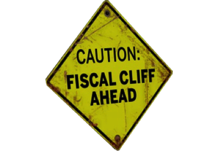Facing the Cliff
15/11/12 05:39

The urban dictionary has some discussion about the exact age when a person is considered to be “over the hill.” One entry says, “meaning that you are 40yrs old, therefore you have reached the climax of your life time and your beginning to go ‘over the hill.’” I wonder if the urge to correct the grammar is part of being “over the hill.” Perhaps our generation used to many apostrophes with all of the contractions we use that there are none left for younger writers.
Another entry in the urban dictionary reads: “when you are 50-yrs-old and to old to live . . .” Apparently we have also unwittingly created a shortage of vowels. I, however, seem to still have enough to spell out “years” and make the distinction between “to” and “too.” But then I am over 50 years old.
Yet another entry reads: “In the rest of the world over the hill refers to someone over 50 or 50 but in Birkenhead your considered past it if you aren’t married with kids at 19.”
I’m not sure, exactly, why I read the urban dictionary, except for a general love of dictionaries. I remember when our children began to visit their friends at mealtime and discovered that not all families keep an unabridged dictionary at the dinner table for easy reference during mealtime discussions. Those kids have now grown up and established homes of their own and we’ve moved on to laptop computers for quick reference to a variety of dictionaries. I never could afford a printed copy of the Oxford English Dictionary, but the online version works well.
The OED, by the way, doesn’t attach an age to “over the hill,” stating: “informal old and past one’s prime.” It also cross references “as old as the hills” and “a hill of beans,” which I found reassuring since it seems possible that the “hill” that I am now “over” didn’t amount to much in the first place.
I was thinking of how we use words because the news sites that I read seem to have fallen in love with the phrase “fiscal cliff.” It has been a little while since I have visited Washington, DC, but my memory of the place is that it is pretty flat. There are a few gentle hills, but one has to use one’s imagination to think of any precipice in the city that is steep enough to cause injury except for the walls of buildings. The fiscal cliff, however, does seem to be of human origins and not a part of the natural world.

Of course I don’t really want my taxes to go up. And I don’t really want the US to enter into another recession. But I wonder if using the term “fiscal cliff” is really helpful in finding a solution.
If the urban dictionary can be noted for bad spelling and grammar, perhaps Washington DC could be noted for bad metaphors.

They can say what they want about fiscal cliffs, but the metaphor threatens to forget some real people I know who have already gone over the edge and dropped out of the sight of the politicians. That mortgage crisis a few years ago really did result in real people losing not only their homes, but with the homes their life’s savings. I know people who instead of thinking about retirement at age 60 are wondering how to find a job that will pay enough to make rent and groceries for the next decade so they can delay applying for Social Security enough to get their benefits up a bit. I’ve been in the home of folks living in a 25-year-old rented trailer house who have been paying social security all of their lives and watching the folks in the 6,000 square-foot-home up the road from them drive by in their Mercedes. They know how much the bail out of banks and insurance companies cost federal taxpayers. And they noticed who did and who did not lose their homes.
I know a widow who was stuck on the horns of a dilemma recently when a family member with an addiction stole the money she had set aside to renew her prescriptions the next day. Her “fiscal cliff” was only $300 tall, but it might as well have been a million since she could see no way to overcome the dilemma.
I had a conversation with a guy a couple of weeks ago who, on the advice of a doctor, rushed his wife to a hospital 200 miles from his home, arriving without enough money to fill the gas tank for the return trip. A one-day’s delay in his return might not just have cost him in lost wages. It might have cost him his job. Gas money isn’t a problem when you don’t have a car any more.
There are a lot of people in my circles for whom the fiscal cliff doesn’t appear to be looming at the transition between 2012 and 2013. It seems to be something they’ve already been over. And, for what it is worth, in most of the cases it didn’t feel like a cliff at all. It was a gradual decline. Two adults working at minimum wage in our town doesn’t raise a family above the poverty level. At least the kids can get a free breakfast on the days when school is in session. Salvation Army Thanksgiving boxes contain less than half the groceries they did a decade ago. The demand is just too high.
